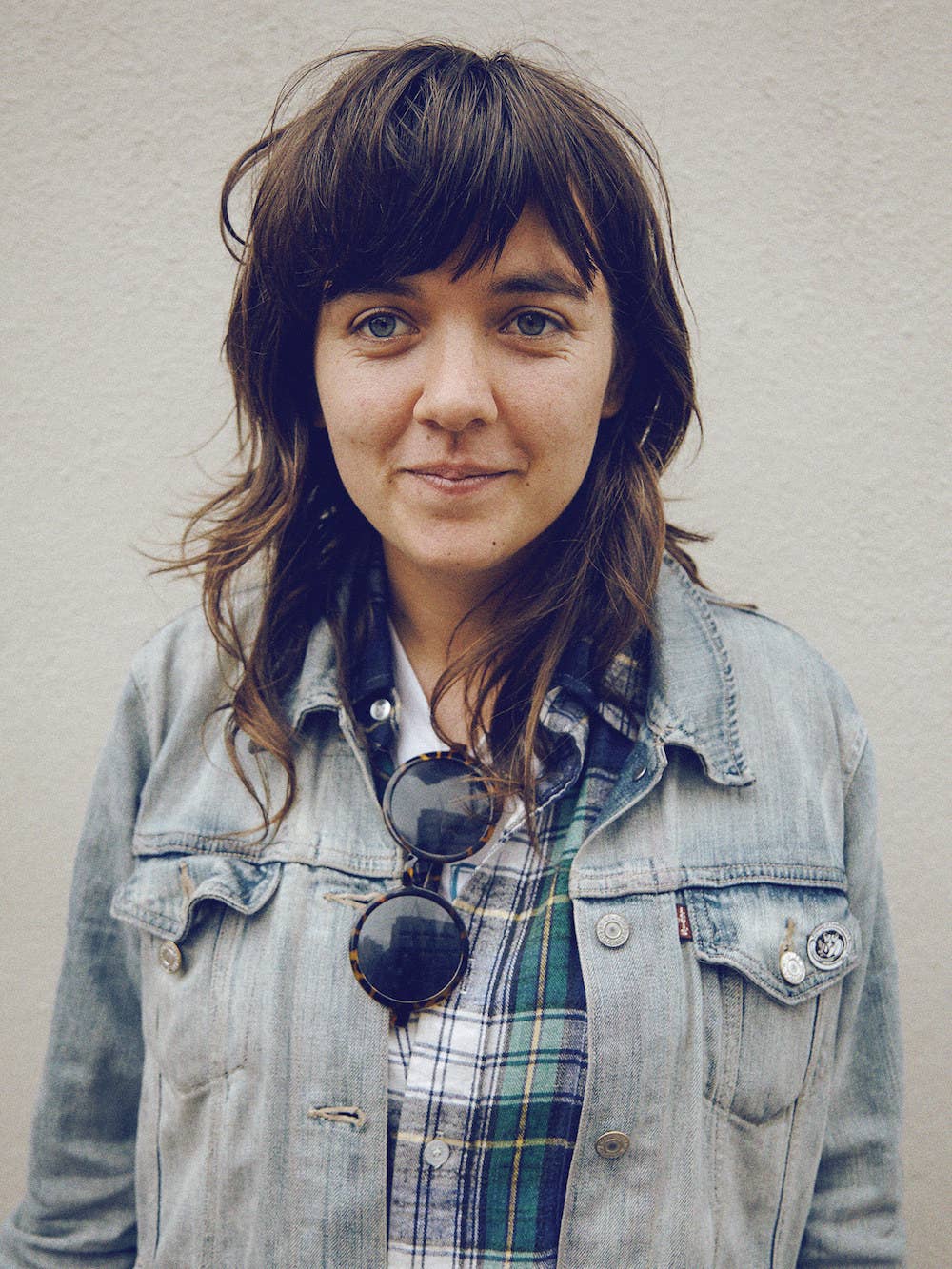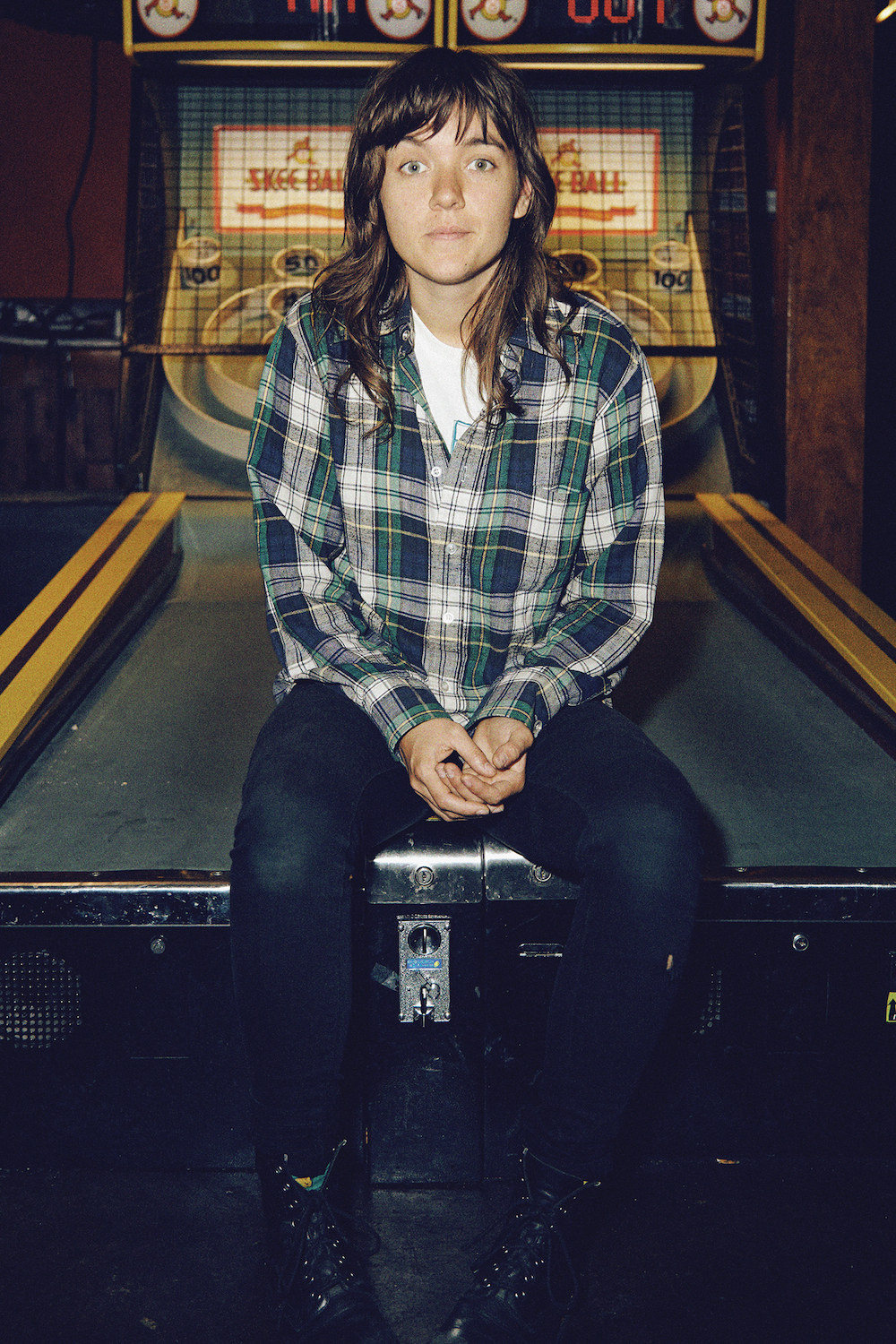
AUSTIN — Courtney Barnett wasted no time ripping off the proverbial Band-Aid at South by Southwest this year — her first time attending the diffuse Texas multimedia conference — playing the first of seven planned shows this week even before the music portion had officially begun. On Monday night, in front of a well-attended but loose crowd on the back patio of the downtown bar Red 7, the Melbourne-based singer-songwriter and guitarist played with an impressively casual ease — swaying from behind a curtain of long, brown hair and bantering with her bassist, "a real sexy guy" — as if the audience was composed of old friends. Of course, it wasn't quite. Industry honchos and ambitious app proprietors in lanyards and baseball caps, spillover from the waning interactive segment of the conference, mingled among the crowd.
Like most young acts that play SXSW, Barnett is embarked on something of a high-wire endurance test, navigating a series of sponsored showcases (often multiple per day) in an attempt to expose her music to people who can help advance her career in some way. But unlike most newcomers to the conference, she has the advantage of a full team — management, booking agent, label, publicist — already in place. A pair of well-received, independently produced EPs released internationally last year earned Barnett a sizable fan base by indie standards, which has swollen to include people like Ellen Degeneres, on whose daytime talk show she appeared (in a taped performance) the same day she played Red 7 ("…One of my favorite new artists — I love her so much," Ellen gushed).
On Tuesday, I caught up with Barnett at Buffalo Billiards, a cavernous 6th Street bar and gaming hall, fresh off a photo shoot with Urban Outfitters. Twice during our conversation, we were interrupted by young female fans who were brimming with compliments and testimonials about what Barnett's songs had meant to them ("We planted her here to impress you," the singer joked after the first). Read excerpts from our chat, about the awkwardness of playing new material and the moral calculus of corporate sponsorship, below. Barnett's debut album Sometimes I Sit and Think, and Sometimes I Just Sit releases on March 23 and is streaming on iTunes now.
Last night was your first show at your first SXSW. What was going through your mind before you went on stage?
Courtney Barnett: We've only played our new songs a few times before an audience, twice in L.A. last week and a couple times back in Melbourne, so I was still unsure about how things were going to go. It's always a little awkward when you're playing new songs because you don't know whether people are going to like them or not, which isn't to say you're even sure if they like your old songs. But I thought it went well. People seemed to be into it, which is always a relief.
Is it harder to play showcases like that with industry people and "influencers" in the crowd than it is to play a regular show?
I don't think of them as showcases. To me they're just gigs. When we played CMJ the first time I came to the States [in 2013], I was a bit wary about that. I had heard that there were a lot of industry types who come out to those shows and I was like, hmm, I don't know about this. But then every time we played a show, so many people came up to us afterward and were like, "Oh we're so glad you came! We're big fans. I live across the street and I come to CMJ every year." They were just regular people who bought tickets. I've never played SXSW before, but I've heard it's similar — the crowd is like 50-50 [casual fans and industry], or something. My manager comes to the shows and I'm sure he's walking around and talking to people, but we don't ever think about [executives] hearing the songs or whether or not they like what we're doing. We just want to share our music with more people and try and make sure they have a good time. I think that's the best you can hope for, really.
Playing seven shows in four days is an unusually compressed schedule. How did you prepare?

We didn't, really. (laughs) You can't really plan too much for things like this because everything is always getting moved around and things come up at the last minute. You just kind of have to show up and get through it. It's not like you can set aside two hours of rest before a show or get eight hours of sleep — it's just never going to happen. And I don't know that I would want it to. Just the excitement of being in a new place, and having new experiences, and meeting people that you've never met before is what keeps you going. It's an adrenaline thing. Some of our best shows we've done after going four nights in a row on four hours of sleep — just totally beside ourselves. In a weird way, going through something like that can put you in a different zone during a performance, where you're pulling from something that you don't even really understand or aren't normally aware of. [If we need a pick-me-up] sometimes we'll eat bananas before going on. There's something in them that I've heard gives you a little kick of energy.
Every year at South by there's talk about the ever-encroaching presence of big corporations like McDonald's or Doritos. How do you navigate an environment like that as an artist?
It's interesting for me because this is my first time at SXSW, but I know people who have played here before and stopped coming because it's gotten too big or too corporate. But I think that's the way it always goes, isn't it? Something starts out small and cool and the bigger it gets, the more people want to try and use it to sell something. It's the same with a lot of festivals. It's shitty when that happens, and you wish that things were different, but that's just kind of the way it is. There are a lot of companies who will pay bands a lot of money to play sponsored shows, and I think everyone has their own morals and has to decide what they're comfortable with when it comes to that. As an artist, I think the only thing you can do is keep trying to make great art and get it to people in a way that's hopefully true to who you are.


